by Brent Brookes
For almost three years, I have been working on my MSc as part of a Strategic Project Grant in the Rocky Mountains of Alberta and British Columbia. The project is partnered with Parks Canada and examines introduced invasive brook trout populations across nine lakes in a roughly 100km range of each other. Sampling fish from these lakes is only possible during 4-5 months of the year when the lakes aren’t frozen over, and many require multiple weeks to months of daily visits, often involving weighted hikes up mountains. I have spent over 10 months of my masters working in the field sampling these lakes and have compiled a list of 10 tips to keep you safe, sane, and focused while spending 4-5 consecutive months in the field.
1 – Make friends: Whether your field crew is comprised of your lab-mates, departmental colleagues, your professor, or a bunch of hired volunteers, maintaining a relaxed and friendly relationship will dissolve stress and tense situations. You’re all in the same boat when it comes to fieldwork, sometimes literally, and it helps to make the best of it and get along with everyone you’re working with, especially when crews are small and field seasons are long.
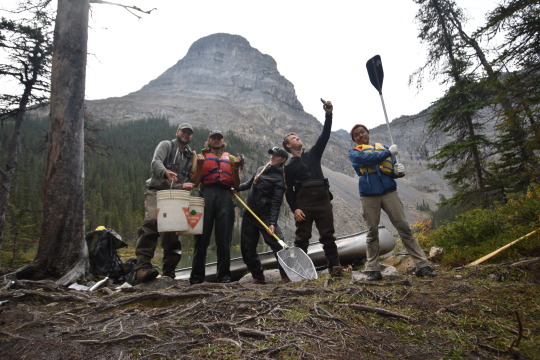
2 – Dress for success: This may seem like a no-brainer, but make sure to triple check all of your gear. This covers both before you leave for the field season and each day you get up and head out the door/tent-flap to collect samples. Make sure you’re familiar with the weather conditions of your field site – in the mountains it could go from 28°C to a snowy blizzard in an hour, which meant packing sunscreen as well as a lot of layers for the cold.
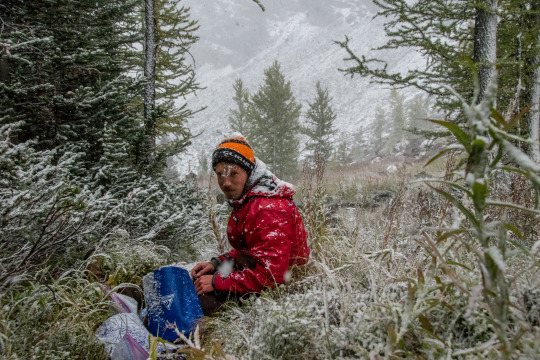
3 – Pack your field supplies the night before: Waking up at 6am to hike up a mountain can be tough, especially if you’re up until 10pm driving back from a field site; but packing your gear in a tired haze is even worse. As much as it might suck to stay up another half an hour to unpack and repack your field-kits, it beats trying to pack while half asleep the next morning, driving an hour to a site, then realizing you forgot the one piece of absolutely necessary equipment. If you can’t pack the night before or it’s just too draining, make sure you have a field gear checklist.
4 – Always have a plan B, always have a contingency: Whether your field stint is constrained because of changing seasons, or a limited time to collect your samples, every day can make a difference and having to quit early can push back your field season deadlines. Making sure you’re prepared for unexpected hiccups is essential. Dress for every possible weather occurrence (see point 1) and take a change of clothes; sometimes you need to keep working after tipping the canoe into 4°C water. Make an “Oh-Shit! Kit” for emergencies, and backup scenarios where you run out of gear/notebooks/batteries, and other essentials.

5 – Efficiency: Plan your days. Working out the logistics of your field sites between your field crew(s) is critically important. When time is of the essence, plan the most efficient strategy for tackling the work that needs to be done, and make sure its flexible in case of weather/animal or other unforeseen barriers.
6 – Make your base camp feel like home: Whether it’s a cabin or a campsite, when you get back from a day in the field, get unpacked, and put down your datasheets you should be able to relax. Having a space that feels like home where you can put your feet up while you eat supper is important for maintaining your mental health and creating a separation from your fieldwork.
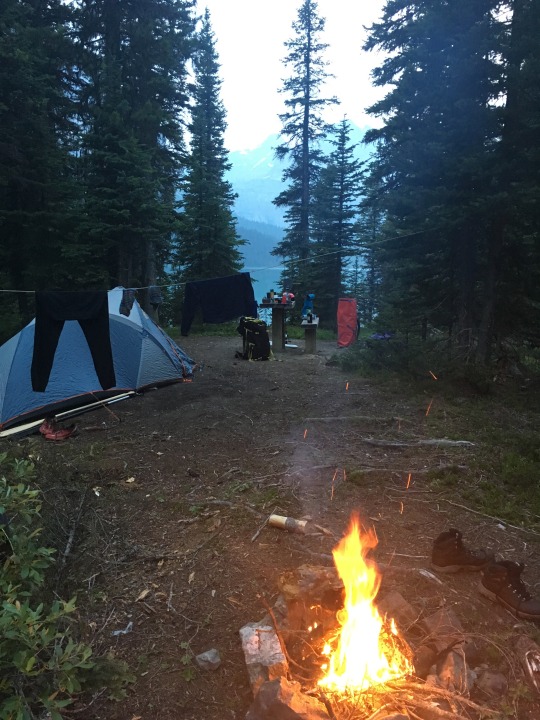
7 – Stay on top of your thesis and literature: Being in the field can separate you from society, sometimes you won’t have any internet or cell coverage, but make sure you keep up with your work. Printing off papers critical to your thesis and your work before you get to the field is a great way to keep up with reading material if you have no internet. When you have time and feel the inspiration to write, take it! Fieldwork can often be so busy that time flies by and deadlines creep up on you, try to stay on top of this as much as you can.
8 – Take advantage of new experiences: If you have a day off (and don’t need to sleep for 12 hours of it), go for that hike in town everyone has been talking about, rent a mountain bike and explore the trails, visit the tourist hotspot. If the area is new to you, try to experience as much as you can so that you can create memories other than long, cold, miserable hours working in the field.
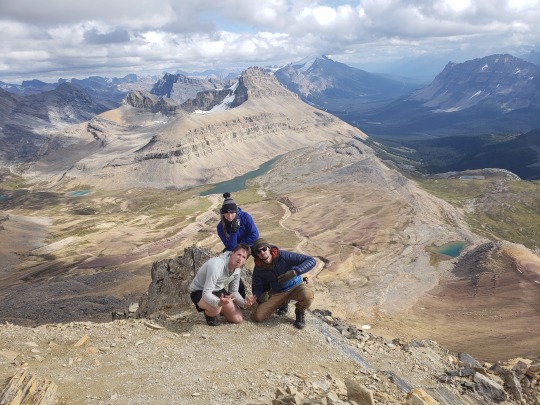
9 – Take “me time” when you can: Everyone can sympathize with burning out, especially when 12+ hour days / 7 days a week takes its toll on your body and your mind. If you’re too worn out, get the sleep you need, put down the research papers and pick up a book, have a beer and watch a movie. Fieldwork can be demanding but if you’re going to make it through an extended season, make sure you listen to your body and keep your mental health in check.
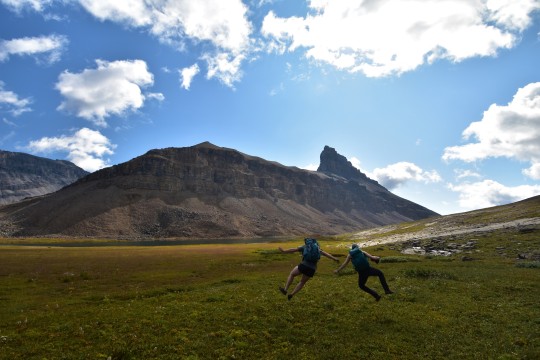
10 – Safety: Make sure that you’re being safe! Wear your lifejacket when you’re in a boat, wear hiking boots while climbing a mountain, don’t drink contaminated water, etc. Safety is the most important thing when doing fieldwork; the more remote your research is, the more research into safety procedures you should put in. Take first-aid kits and update yourself with first aid and field survival courses, know any wildlife or geo-specific safety concerns in your area (bears, cougars, avalanches, floods, etc.). Only do what you’re comfortable with and look out for one another at all times!


Brent Brookes is an MSc candidate in Dr. Dylan Fraser’s lab at Concordia University where he studies the evolutionary and demographic history of introduced brook trout in National Park alpine lakes. He first became interested in genetics and conservation during his Bachelor’s degree at the University of Victoria, which subsequently introduced him to work in the world of fish genetics.

0 Comments